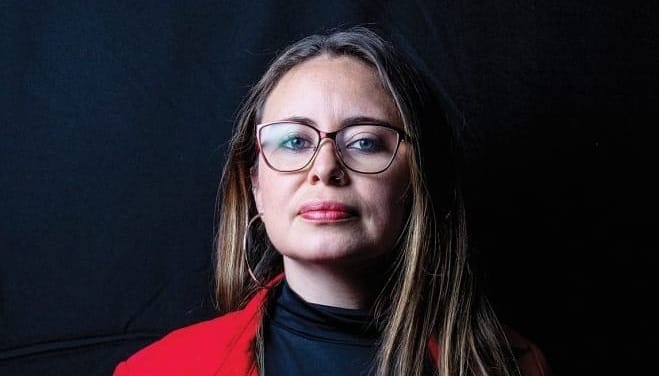Por Nurit Martínez
Ni siquiera queda la esperanza; tal vez lo único garantizado sea una torta de jamón para el recreo escolar. Ese es el panorama en la educación básica tras la extinción de la Comisión Nacional para la Mejora Continua de la Educación (Mejoredu), sin que nadie, absolutamente nadie, defendiera lo que representaba esta institución en sus dos décadas de existencia.
Si, a pesar de todo lo que la sociedad civil organizada impulsó para evitar la desaparición del Instituto Nacional de Transparencia, Acceso a la Información y Protección de Datos Personales (INAI), no se logró la reconsideración presidencial, ahora podemos entender lo que ocurrió con la institución más técnica del sistema educativo. Su presidenta, Silvia Valle, y la comisionada Etelvina Sandoval dedicaron las últimas semanas a buscar algún acomodo en la Secretaría de Educación Pública de Mario Delgado.
La tendencia impuesta por el gobierno anterior del presidente Andrés Manuel López Obrador, de despreciar y ser indiferente ante los grupos de especialistas, continúa en el inicio de la gestión de la presidenta Claudia Sheinbaum en temas como la desaparición de siete organismos autónomos y la reforma judicial.
La especialización y el conocimiento técnico les estorban. Sin embargo, en áreas como la evaluación educativa, sería indispensable tratar con expertos para saber hacia dónde ir o qué corregir.
Pero eso, al parecer, no importa; es lo de menos. Sí, ya lo hemos visto. Al menos quedaba algo de esperanza al inicio de esta administración, pero el desdén demostrado, junto con el reparto de las comisiones legislativas en el Congreso, lo ratifican.
Para muestra, un botón: el pasado 30 de octubre, Mejoredu compartió en redes sociales que Silvia Valle y Etelvina Sandoval se reunieron con María de los Ángeles Ballesteros, presidenta de la Comisión de Educación de la Cámara de Diputados, para dialogar sobre “la especificidad normativa de Mejoredu y sus aportes para el impulso de la educación humanista.” Sin embargo, el foco no fueron los argumentos sobre la relevancia del organismo, que brinda indicadores claros sobre necesidades como agua, luz, pisos, techos y calidad educativa a través de exámenes a alumnos.
Lo que llamó la atención fue que la legisladora desconoce todo sobre el tema educativo. Antes de llegar al congreso su labor era legal, en una sede en Puebla de las conocidas Tortas Locas Hipocampo. No se sabe qué capacidades vio la bancada de Morena para ponerla al frente de las decisiones presupuestales y legislativas de la educación en México.
¿Qué tienen en común saber de proveedores de cebolla, jitomate y pan para hacer mejores tortas de jamón, milanesa, española, cubana o de chorizo, con saber cuántos planteles en México no tienen agua potable? En efecto nada ¿Qué conocimiento sobre la elaboración de las tortas locas se puede aplicar cuando a la legisladora se le presenten los mecanismos para elevar la calidad de la educación? Sin lugar a dudas hay poca relación.
Mejor aún, ¿con qué argumentos deberán llegar los rectores del país para evitar que el recorte presupuestal a las universidades públicas impacte en la investigación, la innovación o el desarrollo tecnológico? Insisto nada, ninguna pero así son las capacidades que ha privilegiado el grupo legislativo. El pago de cuotas sobre el conocimiento y así será en lo cotidiano lo que enfrentará la legisladora. Quizá con la misma cara de sorpresa con la que nos quedamos al leerlo, pero que en los hechos se traducirá en decisiones.
Estimadas y estimados lectores, disculpen la ironía, pero ¿qué de cercano tiene saber los secretos de las tortas locas con impulsar a México como un país de desarrollo científico, tal como se anhela en esta gestión presidencial?
La agenda educativa está atravesada por la propuesta de “austeridad,” la improvisación y las deudas políticas del movimiento que gobierna, que sigue colocando a los de mayor honestidad, pero con cero capacidades, en espacios clave de la gestión pública.
Con la extinción de Mejoredu en el sector educativo, surgió la duda de qué ocurrirá en los próximos 90 días, no solo con el grupo de investigadores técnicos especializados que México logró formar en indicadores y procesos de aprendizaje, sino también con el papel que desempeñarán dentro de un pesado mamut como lo es la SEP.
La sentencia de Morena y sus aliados en la Cámara de Diputados, con 347 votos a favor, elimina siete órganos autónomos: además del INAI, la Comisión Federal de Competencia Económica (Cofece), el Instituto Federal de Telecomunicaciones (IFT) y los organismos reguladores en materia de energía como la CRE y la Comisión Nacional de Hidrocarburos. Esta decisión tendrá graves afectaciones sociales.
Se aniquilarán los grupos técnicos que iluminan la política social: los que verifican si los recursos millonarios inyectados llegan a donde deben llegar y hemos podido verificar en los resultados de las evaluaciones de organismos como el Consejo Nacional de Evaluación de Políticas de Desarrollo Social (Coneval). Si impactan lo que deben impactar o si en su operación duplican esfuerzos. Estas eran tareas de Coneval.
Por eso, el morenismo buscó acabar con estas instituciones, porque eran espacios donde los investigadores sociales revisaban el flujo de la intervención burocrática en la entrega de recursos al “pueblo bueno".
En el caso de Mejoredu, la indiferencia de quienes encabezaron la institución durante la administración lopezobradorista ha dejado el futuro de la educación en México plagado de ocurrencias e improvisaciones.
Lo único que queda es esperar que, al menos, la Secretaría de Educación Pública y la Cámara de Diputados puedan hablar sobre la regulación de alimentos en las escuelas. Pero de educación será difícil. Sara García y Joaquín Pardavé estarían felices de escuchar que, en el centro de las escuelas, se escuchará con un grito claro: ¡Acá las tortas!

Las opiniones expresadas son responsabilidad de sus autoras y son absolutamente independientes a la postura y línea editorial de Opinión 51.






Comments ()